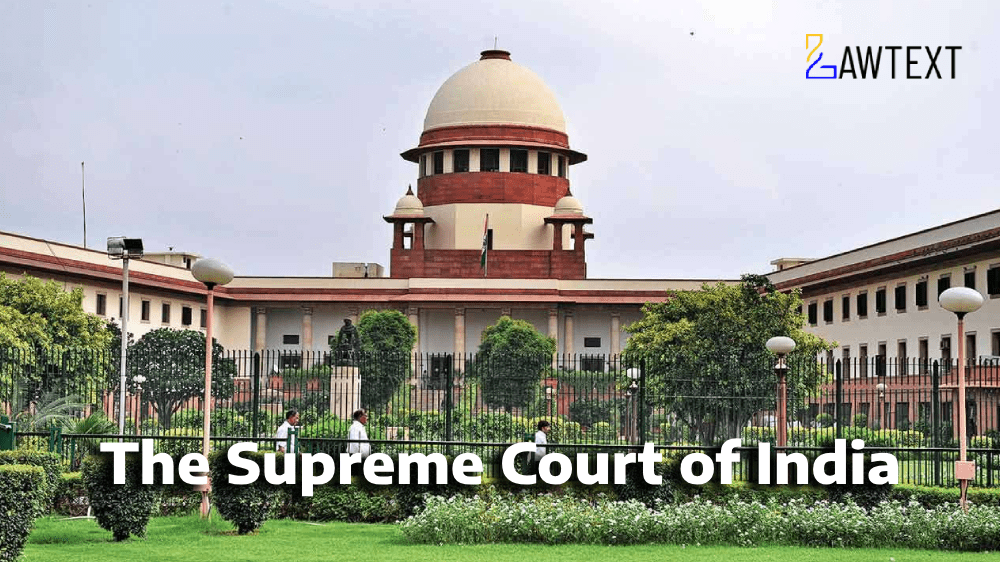CASE NOTE & SUMMARY
The Supreme Court of India, in Civil Appeal No. 5932 of 2023, ruled against Pranav Srinivasan’s plea for resumption of Indian citizenship. Pranav’s appeal under Section 8(2) of the Citizenship Act, 1955 was dismissed due to the interpretation of "Indian origin" as defined under the Act. The court held that Pranav’s parents, having adopted Singaporean citizenship before his birth, were no longer Indian citizens, disqualifying Pranav from resuming Indian citizenship. The court further clarified that Article 8 of the Constitution does not support citizenship claims post-1950 for foreign-born individuals based on grandparents' birth in undivided India. However, the judgment left open the possibility for Pranav to apply under Section 5(1)(f) of the Act, if he meets the required residency criteria.
-
Factual Background
- Pranav’s grandparents were born in undivided India, while his parents, born in independent India, took Singaporean citizenship in 1998. Pranav, born in Singapore, applied for Indian citizenship under Section 8(2) of the Citizenship Act, 1955 after his parents renounced their Indian citizenship. The Ministry of Home Affairs denied his application, leading to the legal challenge.
-
Legal Issues
- Whether Pranav could resume Indian citizenship under Section 8(2) or Section 5(1)(b) of the Citizenship Act, 1955.
- Applicability of Article 8 of the Constitution in his case, based on his grandparents' Indian origin.
-
Supreme Court’s Decision
- Pranav's appeal was rejected under Section 8(2) as his parents had already lost their Indian citizenship upon acquiring Singaporean nationality. Section 5(1)(b) also did not apply as neither Pranav nor his parents were born in undivided India.
- The court noted that Article 8 of the Constitution applies only to individuals residing outside India at the time of the Constitution’s commencement and not to future generations born abroad.
-
Judicial Interpretation
- The court emphasized that plain language must be applied when interpreting citizenship laws. There is no provision in the Citizenship Act, 1955 that allows for a broader, liberal interpretation granting citizenship to foreign nationals based on ancestral origin.
Legal Provisions Discussed:
-
Citizenship Act, 1955
- Section 8(2): Resumption of citizenship for minors after their parents renounce Indian citizenship.
- Section 5(1)(b): Citizenship by registration for individuals of Indian origin residing outside undivided India.
- Section 9(1): Termination of Indian citizenship upon acquiring foreign nationality.
-
Constitution of India
- Article 8: Rights of citizenship for persons of Indian origin residing outside India before or after the Constitution's commencement.
- Article 9: Disqualification from Indian citizenship upon acquiring foreign citizenship.
Ratio:
The court reasoned that Article 8 of the Constitution and Section 5(1)(b) of the Citizenship Act, 1955, are limited to those who were born in undivided India or territories later included in India. The interpretation of the Act does not extend citizenship rights to individuals born abroad after their parents have acquired foreign nationality. Section 9(1) further disqualifies individuals whose parents voluntarily acquired foreign citizenship before their birth.
Subjects:
Indian Citizenship, Article 8, Citizenship Act 1955, Foreign-born Citizenship, Supreme Court Judgment, Section 8(2), Section 5(1)(b), Termination of Citizenship.
Citation: 2024 LawText (SC) (10) 184
Case Number: CIVIL APPEAL NO. 5932 OF 2023 With WRIT PETITION (C) NO.123 OF 2024
Date of Decision: 2024-10-18
Case Title: Union of India Versus Pranav Srinivasan
Before Judge: (Abhay S Oka J. , Augustine George Masih J.)
Appellant: Union of India
Respondent: Pranav Srinivasan

